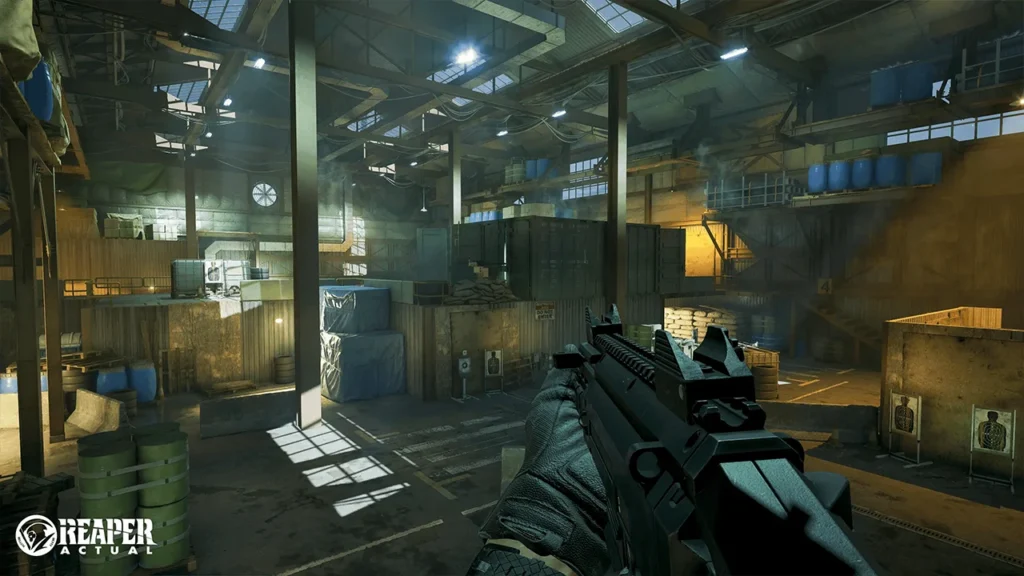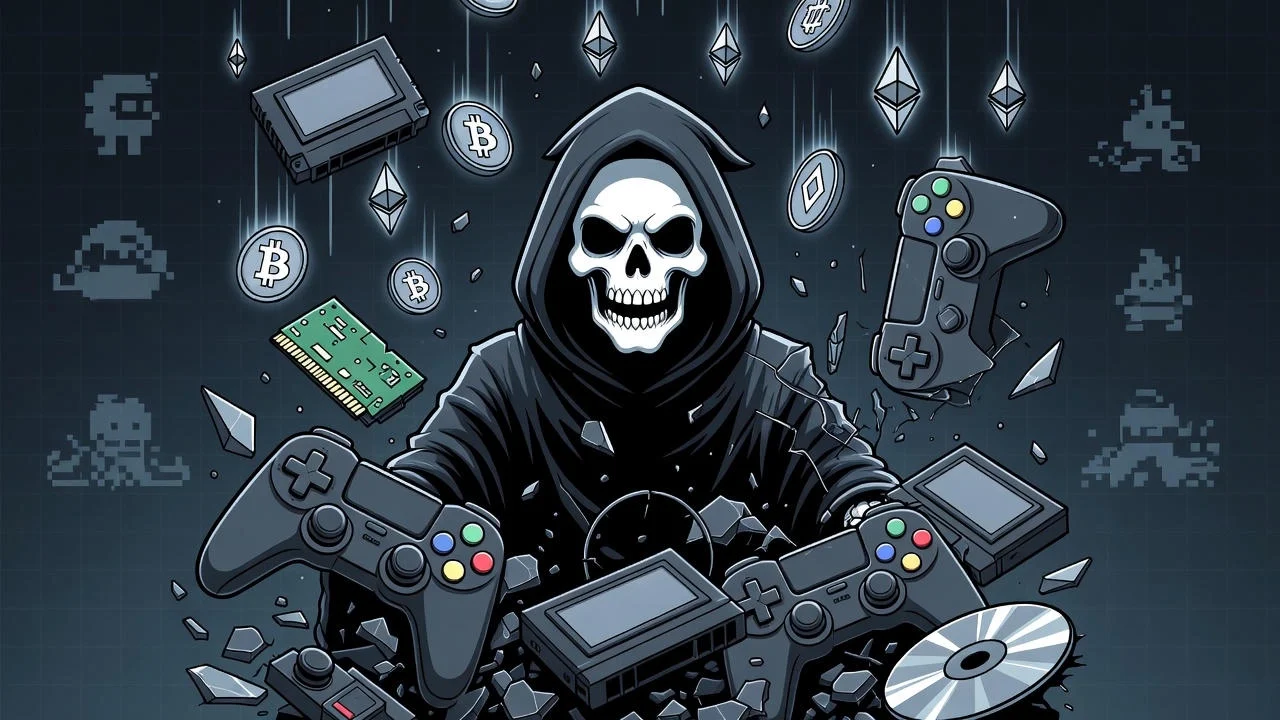Quick Take
- Smedley claims he dislikes play-to-earn, yet built his new game on blockchain rails
- Says Web3 was never the plan, only a fallback after failing to raise money elsewhere
- Reaper Actual leaves a split message on whether it believes in crypto or just needs it
When John Smedley sat down with PC Gamer to talk about Reaper Actual, he had two messages. One, that this is the game he’s always dreamed of making. And two, that the Web3 elements powering it are not really his thing.
“I actually went out with no intention of Web3,” he told the magazine. “And I couldn’t get funding to make this dream game that’s been in my head for 10 years.”
That admission lands hard for anyone tracking the play-to-earn games space. Smedley, whose resume includes EverQuest and PlanetSide 2, isn’t just dipping his toe into blockchain gaming, he’s diving in, but only because no one else would fund his vision. His comments paint Web3 less as a belief system and more as a last resort.
Calling It a Dream Game, Funded by a System He Doesn’t Like
Reaper Actual has raised significant capital for an indie studio. Bitkraft Ventures led a $17.5 million seed round in 2023, followed by a $13 million round in early 2025 led by Brevan Howard. Tezos also provided substantial support.
However, Smedley said he “hates labels like play-to-earn” and that he doesn’t want Reaper Actual to be defined by them. Yet blockchain trading and optional NFTs are part of the core model. The project will live on-chain, even if most players never touch the crypto layer.
On Steam and Epic, the Web3 components will be invisible. Off-platform, NFTs and asset trading will be available. That split identity reflects Smedley’s stance. Pragmatic, but conflicted.
He doesn’t like the ecosystem. He doesn’t like the label. But he took the capital, and the result is a game that now has to live in both worlds.

Web3 Is the Back Door When Traditional Capital Walks Away
Smedley was blunt about it: he didn’t set out to make a blockchain game. He turned to crypto after conventional investors passed. That context matters. It reframes the project as a fallback, not a frontier.
This isn’t the first time a veteran game dev has turned to Web3 only after every other door closed. What makes Reaper Actual different is that Smedley is saying it out loud. He’s not pretending to be bullish on Web3. He’s just doing what he had to do to get the game funded.
That may resonate with some players. It might also signal hesitation to those who’ve seen the play-to-earn cycle before. A reluctant founder tends to build a reluctant product.
Disliking “Play-to-Earn” While Still Selling Assets
In-game base ownership will involve both earned currency and real money. Blockchain assets will be tradeable. Even though players won’t need a wallet, the economic framework is designed to support speculation, value capture, and digital property which are all the tenets that defined play-to-earn in the first place.
Smedley’s comments suggest he wants to distance the game from those associations. But the mechanics are already aligned with them. Whether it’s labeled or not, Reaper Actual is building the architecture that the crypto games movement has relied on for years.

Saying the Game Comes First Doesn’t Cancel the Platform Choice
Smedley told PC Gamer, “If the game sucks, who cares about your Web3 aspects or anything else?” That’s true in any context. But it also sidesteps the reality that building on blockchain sets the rules in advance.
Web3 games operate differently. Trading isn’t just cosmetic. Ownership shifts the way progression, scarcity, and value are managed. That infrastructure changes how developers balance their economies. It’s the structure the entire game rests on.
So when Smedley says the game comes first, he’s already building inside a system that affects what the game can be. That contradiction remains unresolved.
Reaper Actual Inherits the Culture It Tries to Avoid
Smedley wants to avoid the baggage of crypto games. He doesn’t want to be lumped in with failed NFT projects or abandoned token economies. But using Web3 funding means stepping into that space, whether he claims it or not.
It’s unclear what Reaper Actual believes about the blockchain economy it now exists within. The messaging is clean, the access points are optional, and the wallet experience is invisible. That’s by design. But the monetization model still relies on the same rails as the projects Smedley says he doesn’t want to be compared to.
The game might still find an audience. The pedigree is there. The shooter mechanics could land. But the story around its funding will keep following it because it wasn’t a Web3 game until it had to be.





